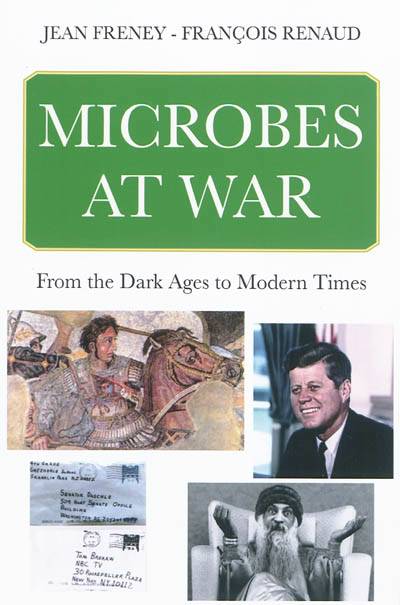
- Afhalen na 1 uur in een winkel met voorraad
- Gratis thuislevering in België
- Ruim aanbod met 7 miljoen producten
- Afhalen na 1 uur in een winkel met voorraad
- Gratis thuislevering in België
- Ruim aanbod met 7 miljoen producten
Omschrijving
Microbes at war
This book illustrates how infectious diseases have influenced the outcome of numerous historical events, especially political and military conflicts. Even in ancient times, people learned to live in the presence of the so-called « miasmas » and in fact used them to scare the enemy. A particularly illustrative example is that of the siege of Syracuse in 416 BC, during which the Spartans cornered the Athenians into an area where swamp fever (malaria) was rampant and thus wiped them out. Similarly in the Dark Ages, human or animal cadavers used to be thrown into wells to contaminate the water and make it unfit for consumption. One of the strategies followed in the Middle Ages consisted of catapulting corpses of men who had died of plague into the enemy camp in order to spread the deadly infection. During the eighteenth century conflicts in North America, the British are known to have offered clothing contaminated with smallpox virus to the native Indians who were friendly with the French. Naturally occurring infections too have often upset the sequence of historical events, such as the epidemic of syphilis during the siege of Naples by King Charles VIII of France, or the English sweating sickness at the time of Lutheran Reformation. The Great Famine that was rife in Ireland in the nineteenth century was a result of a massive destruction of potato crops due to a fungal infection, and it eventually brought to power the first Catholic President of the United States of America, John Fitzgerald Kennedy. The epidemic of influenza known as « Spanish flu » significantly altered the course of World War I. At the turn of the century we see a scientific approach to the use of biological agents for military purposes with the aim of developing weapons of mass destruction, as depicted by the Japanese experiment in Manchuria during World War II. More recently, after the terrorist attacks of September 11, 2001, letter bombs carrying anthrax spores appeared, signaling the emergence of a particularly worrying phenomenon : bioterrorism.
Specificaties
Betrokkenen
- Auteur(s):
- Uitgeverij:
Inhoud
- Aantal bladzijden:
- 135
- Taal:
- Engels
Eigenschappen
- Productcode (EAN):
- 9782747215473
- Verschijningsdatum:
- 2/12/2011
- Uitvoering:
- Paperback
- Afmetingen:
- 160 mm x 240 mm
- Gewicht:
- 319 g

Alleen bij Standaard Boekhandel
Beoordelingen
We publiceren alleen reviews die voldoen aan de voorwaarden voor reviews. Bekijk onze voorwaarden voor reviews.











